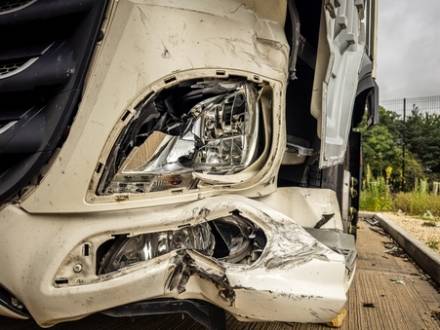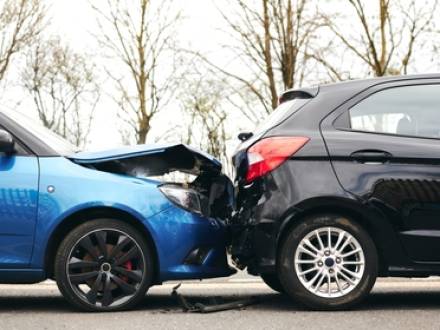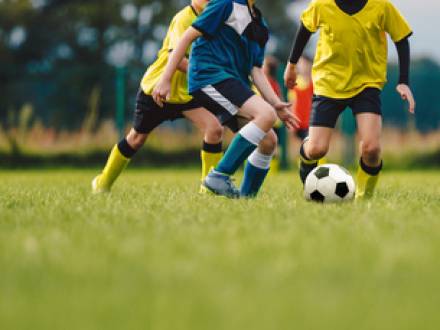Glenview, Illinois 60025
Recent Blog Posts
Possible Signs of Nursing Home Abuse or Neglect in Illinois
 Placing a loved one in a nursing home is often a decision made with trust and careful consideration. Families expect staff to provide safe, attentive care, but problems can still occur. Understanding how abuse or neglect may happen and knowing when something feels wrong can help you protect your loved one and take action if needed.
Placing a loved one in a nursing home is often a decision made with trust and careful consideration. Families expect staff to provide safe, attentive care, but problems can still occur. Understanding how abuse or neglect may happen and knowing when something feels wrong can help you protect your loved one and take action if needed.
According to the Illinois Department of Public Health, the agency receives and reviews thousands of nursing home complaints each year, showing that concerns about resident care remain ongoing across the state. Our Cook County, IL nursing home abuse lawyers understand how upsetting it can be to suspect neglect, and we help families take clear steps to protect those they love.
How Do I Seek Compensation After a Big Rig Crash?
 A truck accident can leave people with serious injuries, long recoveries, and major financial stress. If you were hurt in a collision with a semi-truck or tractor-trailer, you may be able to seek compensation for what you lost.
A truck accident can leave people with serious injuries, long recoveries, and major financial stress. If you were hurt in a collision with a semi-truck or tractor-trailer, you may be able to seek compensation for what you lost.
These crashes are not rare. According to Federal Motor Carrier Safety Administration crash data updated in 2025, Illinois recorded 5,880 total crashes involving large trucks, many of them fatal. For injured victims, understanding the next steps matters.
As of 2026, Illinois law continues to allow injured crash victims to pursue compensation when negligence causes harm, but strict deadlines and evidence rules apply. Our Glenview, IL truck accident lawyers can explain how these claims work and how to build a strong case.
Why Are Truck Accident Claims So Complex?
 Truck accident claims are more complicated than most other auto accident cases. The main reason is that these crashes often involve more people, more rules, and more serious injuries and damage than a typical car accident.
Truck accident claims are more complicated than most other auto accident cases. The main reason is that these crashes often involve more people, more rules, and more serious injuries and damage than a typical car accident.
The scale of the problem is significant. Over 108,000 truck crashes occurred nationwide in 2025, including nearly 3,000 fatal crashes, according to ConsumerShield. When large commercial trucks are involved, the legal and insurance issues are often much harder to untangle.
If you were injured in a crash involving a semi, our Cook County, IL truck accident lawyer can help you build your claim.
Who Can Be Held Responsible After a Truck Accident?
Truck accident claims often involve more than one liable party. Who is legally responsible depends on what caused the crash and who had control over different parts of the trucking operation.
Legal Options for Dog-Related Injuries in Glenview
 Dogs can be sweet and kind. However, dogs are still animals capable of inflicting serious injuries, and there is hard data supporting that claim. The Insurance Information Institute recently reported that Illinois ranks in the top 10 in the nation for most dog bite claims per year, adding up to millions of dollars in damages.
Dogs can be sweet and kind. However, dogs are still animals capable of inflicting serious injuries, and there is hard data supporting that claim. The Insurance Information Institute recently reported that Illinois ranks in the top 10 in the nation for most dog bite claims per year, adding up to millions of dollars in damages.
If you or a family member were bitten by a dog or otherwise hurt by a dog, you may be able to file an injury claim and recover compensation. At Gruzmark Law, Ltd., our Glenview, IL personal injury attorneys have helped numerous clients collect payment, including a settlement worth $410,000 for a dog bite victim.
Determining Liability for Dog Injuries in 2026
A dog’s owner may be legally responsible for any injuries caused by his or her dog. According to 510 ILCS 5/16, pet owners are liable for dog-related injuries if:
Challenges in a Wrongful Death Claim
 When an accident claims the life of a loved one, you may have legal recourse in the form of a wrongful death claim, allowing you to recover compensation for various losses. However, filing a wrongful death claim can come with many difficulties that can slow down the process.
When an accident claims the life of a loved one, you may have legal recourse in the form of a wrongful death claim, allowing you to recover compensation for various losses. However, filing a wrongful death claim can come with many difficulties that can slow down the process.
The team of Cook County, IL personal injury attorneys at Gruzmark Law, Ltd. can provide you with qualified counsel and representation. We have a history of helping grieving clients recover compensation in wrongful death claims and will work to help you get closure for your loss.
Three Potential Obstacles in a Wrongful Death Claim
Statute of Limitations
All injury claims, including wrongful death claims, are bound by a statute of limitations in Illinois. This means that you must file a claim within a certain amount of time from the date of the death, and if the statute of limitations expires, you will lose the right to recover compensation.
Should I Call 911 After a Car Accident?
 In the aftermath of a car crash, you might be overwhelmed at how to respond, especially when you come face-to-face with the other driver, who may be just as panicked or upset. You may fear that contacting the authorities will only escalate the situation, but there are multiple compelling reasons to call 911 after a crash.
In the aftermath of a car crash, you might be overwhelmed at how to respond, especially when you come face-to-face with the other driver, who may be just as panicked or upset. You may fear that contacting the authorities will only escalate the situation, but there are multiple compelling reasons to call 911 after a crash.
At Gruzmark Law, Ltd., our Northbrook, IL personal injury lawyers can advise you of what to do after a car crash. Our firm can help you document interactions with the police to strengthen your case for a car accident claim, fighting for full compensation on your behalf.
Reporting a Car Accident to the Police
It is understandable not to want to involve the police in what seems like a minor accident, but you should also know that calling the police does not necessarily mean getting somebody in trouble with the law. When an officer responds to a car accident, he or she will write an official accident report with details about the collision, including the responsible party. This official report can serve as valuable evidence for your claim, as it may indicate that the other driver was at fault.
Common Causes of Car Accidents
 If you have been hurt in a car accident caused by a negligent driver, that driver may be liable for paying for your damages. These can include your medical expenses, property damage, lost income, and the pain and suffering you endured. However, before you can collect compensation, it is up to you to prove that the driver acted negligently in a personal injury claim. A Glenview, IL car accident attorney can help you identify the cause of the crash to support your case.
If you have been hurt in a car accident caused by a negligent driver, that driver may be liable for paying for your damages. These can include your medical expenses, property damage, lost income, and the pain and suffering you endured. However, before you can collect compensation, it is up to you to prove that the driver acted negligently in a personal injury claim. A Glenview, IL car accident attorney can help you identify the cause of the crash to support your case.
At Gruzmark Law, Ltd., we have investigated numerous car crashes and helped our clients obtain meaningful payouts for their damages.
Three Common Causes of Car Crashes in Illinois
Speeding
Posted speed limits are there for a reason. Drivers who go well above the pace of traffic have a harder time reacting to incoming obstacles in time. This frequently leads to rear-end accidents caused by speeding drivers who cannot brake in time to avoid a collision with another car.
What Happens When an Accident Results in Permanent Disability?
 Nobody can predict when and where an accident will occur, least of all the accidents that result in long-term, life-changing damage. When you suffer permanent, catastrophic damage due to another party’s negligence, you deserve a remedy for your losses. A Cook County, IL personal injury attorney can shoulder the burden of investigating your claim while giving you a clear idea of what your damages are worth.
Nobody can predict when and where an accident will occur, least of all the accidents that result in long-term, life-changing damage. When you suffer permanent, catastrophic damage due to another party’s negligence, you deserve a remedy for your losses. A Cook County, IL personal injury attorney can shoulder the burden of investigating your claim while giving you a clear idea of what your damages are worth.
At Gruzmark Law, Ltd., we have represented victims of spinal cord injuries and head trauma, supporting clients through careful negotiation and fierce representation in trial when needed. If you have suffered a catastrophic injury because somebody else was careless, do not hesitate to reach out to our firm for legal assistance.
What is a Catastrophic Injury?
In general, catastrophic injuries refer to injuries that have traumatic, usually lifelong consequences. They affect your ability to work or navigate your daily life, possibly necessitating special accommodations or continuing care. Common examples of catastrophic injuries include:
Can a School Be Held Liable for Injuries to a Child?
 As a parent, it can be alarming to find out that your child has been injured at a school or daycare. It can be even more frustrating when no one wants to take accountability for the harm done to your child, leaving you to take on the financial burden on your own. However, you may have legal recourse in the form of a personal injury claim.
As a parent, it can be alarming to find out that your child has been injured at a school or daycare. It can be even more frustrating when no one wants to take accountability for the harm done to your child, leaving you to take on the financial burden on your own. However, you may have legal recourse in the form of a personal injury claim.
At Gruzmark Law, Ltd., we can investigate acts of negligence by schools and childcare centers. Our Northbrook, IL personal injury attorneys will seek full compensation for your child’s damages while keeping you informed of your options. In our firm’s history, we have recovered millions of dollars from successful settlements and verdicts thanks to our strong advocacy.
Documenting Injuries at Schools and Daycares
If you suspect that your child has been injured at a school or daycare, you should document the injury in as much detail as possible. A full medical examination from a doctor can help to identify the child’s underlying damage and give you a clearer picture of how much your claim is worth. Our lawyers can help you investigate different kinds of injuries, such as:
Can I Sue the Nursing Home if My Parent Fell and Got Hurt?
 For elderly residents in nursing homes, a single fall can cause serious injuries like broken hips or head trauma. Families are often shocked and angry when they learn their loved one was hurt in a facility that was supposed to keep them safe. If your parent or relative has been injured in a nursing home, understanding the protections Illinois law provides can make a major difference in how you move forward. A qualified Glenview, IL nursing home injury lawyer can review your case and help you make informed decisions about what to do next.
For elderly residents in nursing homes, a single fall can cause serious injuries like broken hips or head trauma. Families are often shocked and angry when they learn their loved one was hurt in a facility that was supposed to keep them safe. If your parent or relative has been injured in a nursing home, understanding the protections Illinois law provides can make a major difference in how you move forward. A qualified Glenview, IL nursing home injury lawyer can review your case and help you make informed decisions about what to do next.
Why Are Nursing Home Falls So Serious?
Elderly residents are more likely to suffer severe injuries because they tend to have weaker bones and heal more slowly than younger patients. A fall that might leave a younger person with bruises could put an older adult in the hospital for weeks. These injuries can often lead to lasting disability and even wrongful death.






